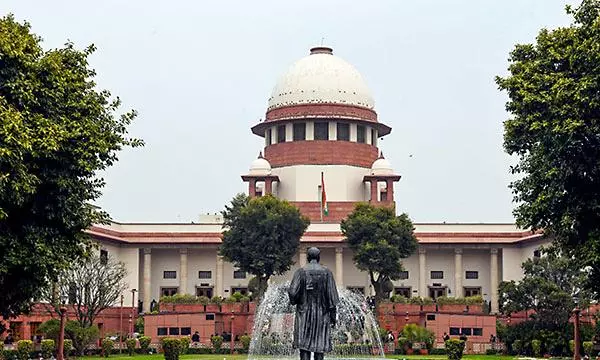
Activists slam SC judge Gavai for calling homeless as ‘parasites’ over freebies
In a statement, 308 signatories criticised the judge’s comments as reflecting an “anti-poor bias” in the judiciary

A coalition of concerned citizens, activists, and organisations working for the rights of the homeless marginalised people has strongly condemned remarks made by Supreme Court Justice B R Gavai, in which he referred to homeless individuals as "parasites".
In a press release on Saturday (February 15), they criticised the judge’s comments as reflecting an “anti-poor bias” in the judiciary.
Also read: 'Creating a class of parasites?': SC slams pre-poll freebies
Justice Gavai made the remarks on Wednesday (February 12) during a Supreme Court hearing on civil writ petitions related to the implementation of the Scheme of Shelter for Urban Homeless (SUH).
He stated: "Sorry to say, but by not making these people part of mainstream society, are we not creating a class of parasites? Because of freebies, when elections are declared... people are not willing to work. They are getting free rations without doing any work. Would it not be better to make them part of mainstream society so that they can contribute to the nation?"
Backlash against remarks
The 308 signatories of the statement argue that such comments ignore the significant role played by homeless individuals in the urban economy. Many work as construction labourers, sanitation workers, load carriers, and caterers, yet remain in extreme poverty due to systemic neglect.
The statement further highlights the difficult living conditions of the homeless, noting that their average life expectancy is around 40 years. Many suffer from chronic illnesses such as tuberculosis and lung disease, exacerbated by malnutrition and lack of access to healthcare.
They emphasised that rather than blaming the homeless for their plight, institutions like the judiciary should focus on ensuring their rights and protection. They called for judicial officers and policymakers to be educated and sensitised about the realities faced by India's urban poor.
Demolitions and winter deaths of homeless individuals
The concerned individuals also shed light on the systematic neglect faced by the homeless, citing the demolition of homeless shelters in Delhi as a glaring example.
In February and March 2023, the Delhi Urban Shelter Improvement Board (DUSIB) demolished nine homeless shelters in Sarai Kale Khan and Yamuna Pushta, reportedly for beautification projects ahead of the G20 Summit. Some of these demolitions were carried out at night without prior notice, leaving many without alternative housing. Despite Supreme Court intervention to halt further demolitions, additional shelters in Dandi Park were later shut down, rendering more individuals homeless, they said.
The crisis has been worsened by harsh winter conditions. According to data from the Delhi Police, over 750 unidentified bodies have been found in the city since November 15, 2024, the vast majority presumed to be homeless individuals who succumbed to the cold, they added.
Call for action
The signatories described these deaths as a "national shame" and urged government institutions, including the judiciary, to prioritise the protection of vulnerable populations rather than stigmatising them.
The condemnation has been endorsed by a wide range of individuals, including academics, journalists, lawyers, human rights activists, and representatives of civil society organisations. Among the prominent signatories are Aakar Patel, columnist and human rights advocate; Jayati Ghosh, economist; and several members of the Right to Food Campaign and the People’s Union for Civil Liberties (PUCL).
The statement calls for immediate corrective action to address the structural injustices that keep millions of Indians in conditions of extreme deprivation.
This article has been generated using The Federal’s AI-powered news article model, based on the contents of an official press release. While the AI assists in structuring and drafting the report, our editorial team carefully reviews, edits, and verifies the information to ensure accuracy, fairness, and adherence to journalistic standards. The Federal remains committed to maintaining editorial integrity and delivering fact-based, responsible journalism.

